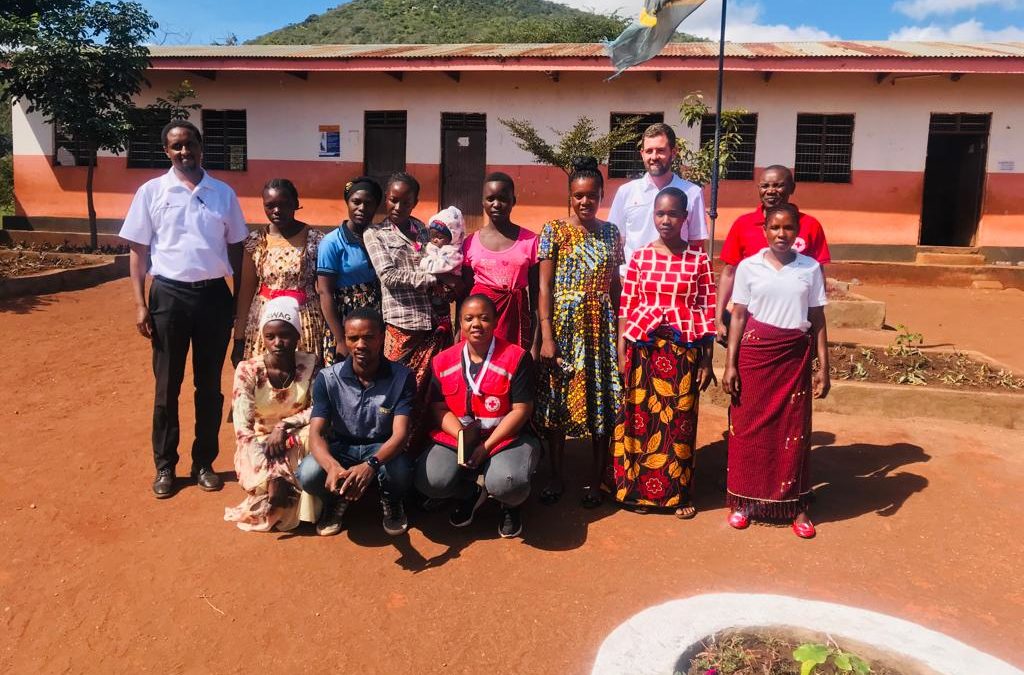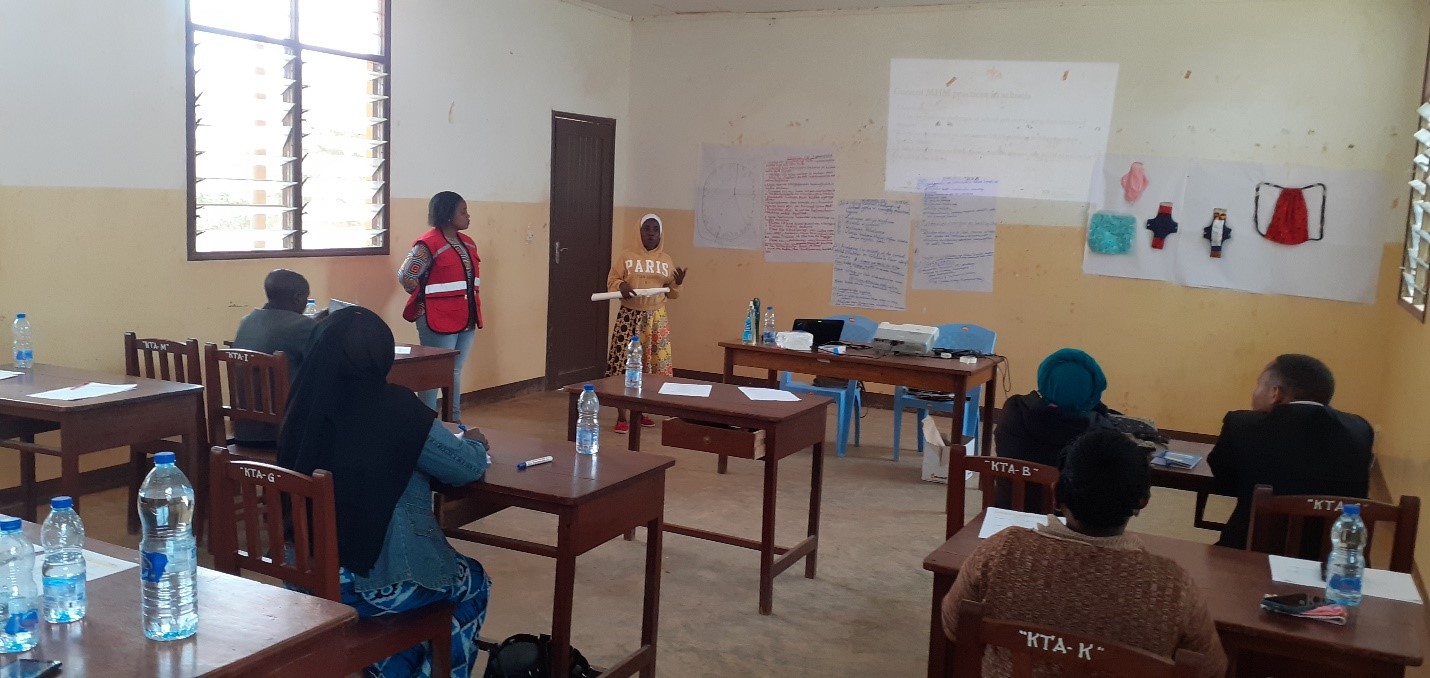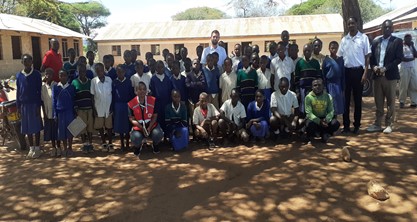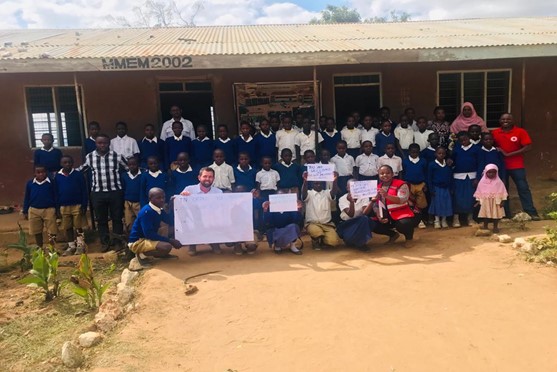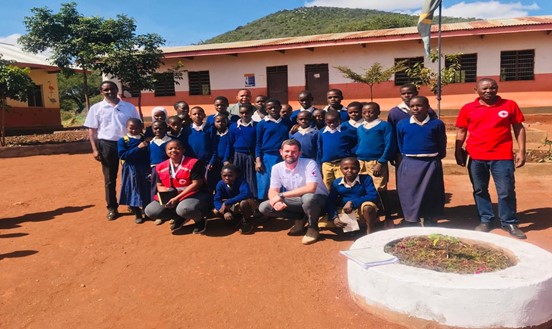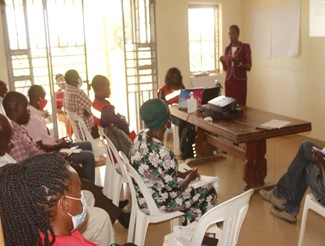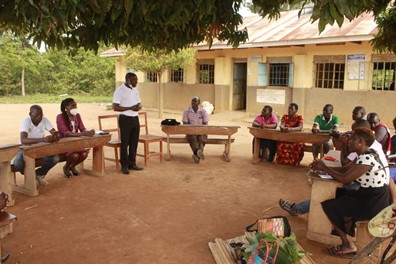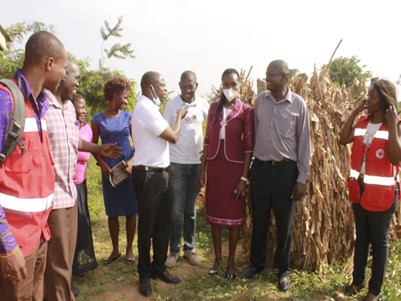Tanzania RC:
Written by Hosiana Silayo Afred, Community Mobilization Officer for the Skybird Micro Project implemented by Tanzania RC
School girls are facing challenges that affect their enrolment and educational participation. These challenges are related to menstrual hygiene management practices. Research findings revealed that school teachers have little support to school girls in managing their menstruation due to the lack of sufficient materials related, awareness and skills. Providing hygiene support to the school girls through their teachers is among the various planned intervention by the national society and the government itself to be implemented for the purpose of improving Menstrual Hygiene Management practices among the school girls.
By recognizing this fact, TRCS in collaboration with AutRC with received fund from ADA are currently implementing the Skybird micro project in Silwa, Makutupa and Njoge primary schools located in Kongwa District Councils, Dodoma region Tanzania. Below are implementing strategies recognizes to enhance the enrollment and participation of girls in education;
- To conduct base line survey and end line-survey on assessing MHM knowledge and practices in terms of cleanliness and management of sanitary pad among school girls.
- Conduct training to 6 school health teachers (ToTs) as a focal guardians for menstrual hygiene, the training aimed at providing important information and equip them with the necessary skills and tools to help the teachers understand menstruation and good MHM practices well so that they will educate and support the students in the school.
- Construction of school WASH facilities; Changing rooms for girls on menstrual period equipped with water facility and temporary disposal container (Dustbin)
- Construction of safe solid waste disposal facilities (Incinerator/Burning chamber)
- Distribution of pads to school girls of reproductive age
- To conduct menstrual awareness campaign through youth’s meetings prepared in school
- To create or activate School WASH clubs for girls to carry out menstrual activity in school
- To train groups of women and youth in the making of reusable sanitary pads for income generation and supply to the schools (see image of tailoring group above)
Uganda RC:
Written by Tikabitile Rebecca, Branch manager URCS Iganga Branch
Brief description of the problem
Although menstruation is an integral and normal part of human life, indeed of human existence, the subject is however too often a taboo and has met many negative cultural hindrances and attitudes due to the perceptions among especially men and boys, including the idea that menstruating women and girls are” contaminated‟, “dirty‟ and “impure‟. Because of the high school dropout rate which currently stands at 10.5% in Namutumba district, women and girls in rural setting and in particular girls in schools suffer most from stigma and lack of services and facilities to help them cope with the physical and psychological pains they undergo during their menstrual periods; inadequate preparations for the young girls who are about to experience menstrual hygiene, lack of inadequate water to clean and wash their body, lack of materials for managing menstrual hygiene, private space and wash rooms and inappropriate facilities for disposal of materials for those who have used pads. In spite of these issues, menstrual hygiene has been routinely ignored by professionals in the water, health and education sectors.
The absence of clean water for washing, private changing rooms and sanitary materials in most schools has aggravated the problem of school dropout standing at a rate of 10.5% yet access to warer in Namutumba district 37%. The reality of taboos and socio – cultural restrictions surrounding menstrual practices prevents adolescent girls from accessing vital and accurate information and facts on menstrual hygiene. It’s imperative for women and girls to have access to the necessary knowledge, facilities and cultural environment that will allow them to manage menstruation hygienically and with their dignity intact.

Training 400 rural school girls to locally make reusable sanitary pads to manage their menstrual hygiene and stay at school throughout the months in Bulange and Magada in Namutumba district.
Construct 2 WASH changing rooms in Nawansekese primary school and Bugobi ss to enable girls have privacy during menstruation hence creating a conducive environment for girls in reproductive age.
The project will also promote the blue school approach through supporting 2 targeted schools with water harvesting facilities that will help to promote WASH, watering trees and nutrition gardens at school. This will not only strengthen MHM but also improve on the pupils’ health through improved nutrition.
Build capacity of 8 farmer’s saving groups to continously produce and supply reusable pads at a reasonable price to the targeted communities for increased access to reusable pads and soap on the market.
Promote idea of parents contributing toward MHM with 1,000 USh /= payable per term.
Why MHM is an important topic for me, URCS and the project beneficiaries
To me MHM is very important because if properly handled, it can promote health and well being of girlchildren and mothers in communities. To the Uganda Red Cross Society it’s a tool to fullfill its mission and vision. To Iganga Branch it is important because it helps increase the visibility of the branch and as well helps the branch to address MHM challenges affecting vulnerable young children. The program will help increase on the membership base of the Branch since it encourages gender groups as well as individuals to join the Red Cross as members.
To the beneficiaries, MHM will help:
– Increase on the school completion rate by 60% among targeted girls supported by this project
– Reduce on the stigma and isolation of girls from boys due to improved knowledge and understanding on menstrual hygiene
– Reduce on the school absenteeism experienced in the past due to lack of menstrual hygiene and management systems in the schools.
– Reduce on the cost of disposable sanitary pads as girls and farmer saving groups will be trained to make reusable pads
– Avail a conducive environment for girls and the entire school through the construction of 2 changing rooms and 2 water harvesting facilites for improved WASH.
